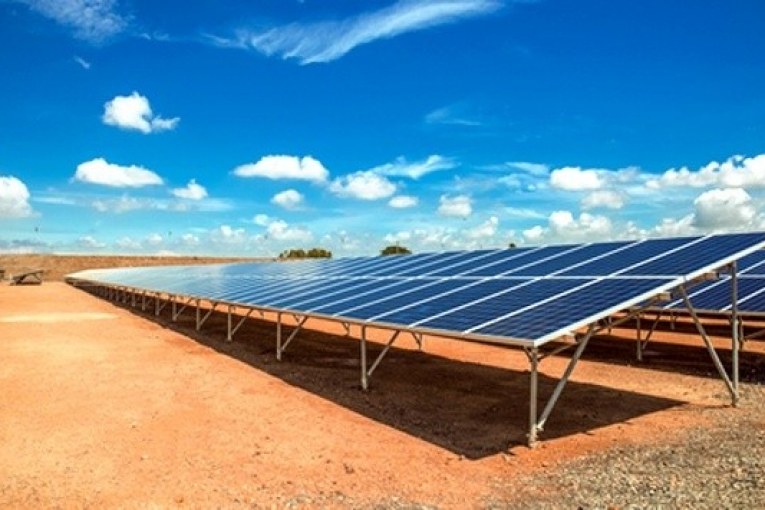

By Leanna Sweha
On Thursday, the legislature held a hearing on how to promote a “just transition” to a low carbon economy. Assembly Member Eduardo Garcia (D-Coachella) in his opening remarks said Imperial County has a 24 percent unemployment rate – the state’s highest. He said this was unacceptable in a growth economy and region with so much natural potential for renewable energy and other industry.
Garcia then said that inadequate investment in workforce development is the largest obstacle to attracting business investment in his district.
Now there is no doubt that workforce development is important in a changing economy. But might there be other reasons why the renewable energy industry hesitates to invest in Imperial County, and in the state as a whole, for that matter?
Well, the advanced energy industry itself said yes, there are. It’s spelled out in a 2013 study by the Advanced Energy Economy Institute, the research and education arm of Advanced Energy Economy, whose  co-founder is potential gubernatorial candidate Tom Steyer.
co-founder is potential gubernatorial candidate Tom Steyer.
The 2013 study summarized interviews with CEOs and other senior executives from advanced energy companies active in California.
These executives said California provides an “enviable environment for technology research and development, product design and testing, and retailing of advanced technologies…”
However, their companies found it “much more challenging to establish manufacturing operations in the state and to develop advanced energy installation projects.”
The challenges included:
- Administration of the state’s environmental quality act (CEQA).
- High tax burden.
- High cost of living, which affects the availability of and costs of certain blue-collar labor.
Additionally, the executives said there was “…substantial concern that…state agencies and other government entities will implement…programs in ways that prove ineffective and inefficient…Agencies act in uncoordinated and un-prioritized ways, and advanced energy businesses face agency actions in one domain that seem inconsistent with the goals of policies in other.”
In other words, the ‘too many cooks spoil the broth’ problem.
Ultimately, these executives warned that California will only accomplish its climate and economic goals if it puts a focus on “facilitating a more favorable environment for companies doing business in California.”
At Thursday’s hearing, Assembly Member Garcia stated that he would not consider the state’s climate change policy successful until residents can access the new clean energy job opportunities of the future. This makes sense – a low carbon economy that displaces oil and gas workers but produces few well-paying new jobs would not seem “just.”
Garcia is both Chair of the Joint Legislative Committee on Climate Change Policy and a member of the Air Resources Board. He is in a unique place to address the issues raised in the Advanced Energy Economy Institute study. Perhaps future hearings already are scheduled to address them. Let’s hope so.
After all, every California resident is an investor in the state’s climate policy. Don’t we all deserve a reasonable return on our investment?


Hi Leanna,
I appreciate the article.
I agree that an unfavorable business climate certain limits the number of businesses established. However, I often have a hard time sorting out where the line lies between “reasonable” and “burdensome” regulation. With too much regulation, businesses are likely to locate elsewhere, with too little one can end up with the unhealthy kind of development now getting so much press around Houston.
What would be useful for me as a non business person would be specifics about what is meant by “Administration of the state’s environmental quality act (CEQA)” and what the authors would see as improvements in administrative policy.
Also, with regard to taxation. The complaint is often that it is too high. I don’t think that I have ever heard the comment from business that it is too low. Rarely do we see a proposal for what would be optimal taxation.
“At Thursday’s hearing, Assembly Member Garcia stated that he would not consider the state’s climate change policy successful until residents can access the new clean energy job opportunities of the future. This makes sense – a low carbon economy that displaces oil and gas workers but produces few well-paying new jobs would not be “just.””
I don’t see anyway that will happen. Extraction industries are labor intensive, something is extracted, transported, processed, transported again and generally sold in a competitive market. Each step requires people. With advanced energy technologies there will be far fewer jobs. With Elon Musk’s new solar power model your roof is your solar generator, you store electricity on site and power your automobile yourself. Other than initial manufacturing and installation there are very few jobs in this system.
The National University System’s Institute for Policy Research (based in San Diego) studied the economic impact of the renewable energy sector in Imperial County in 2016. Here is the report:
http://www.nusinstitute.org/assets/resources/pageResources/NUSIPR_Imperial_Renewable.pdf
It showed demand for jobs with wages higher than the county average in construction, operations and maintenance, but cautioned that more study was needed. It also noted that most industry jobs are temporary, not permanent. Construction jobs appeared to pay the most.
Happy Labor Day in the “Sanctuary State . “